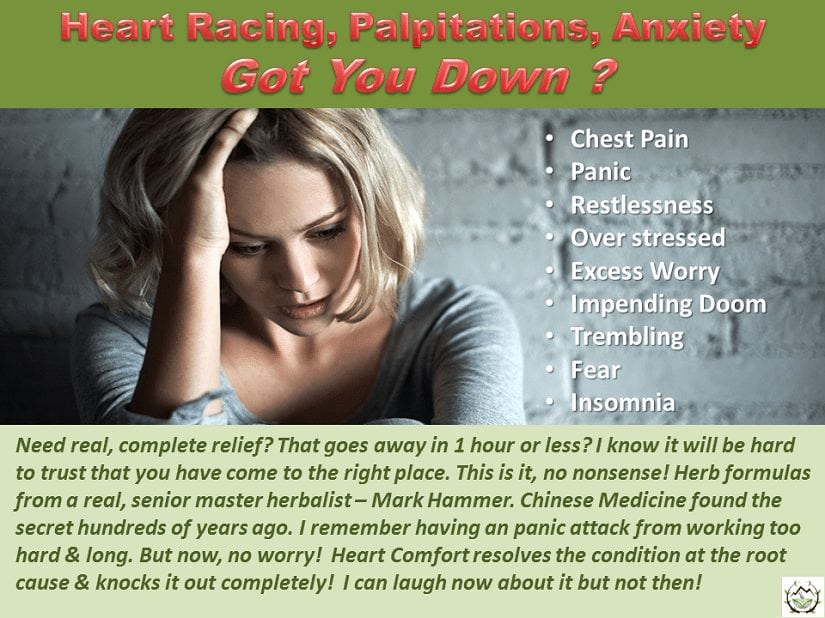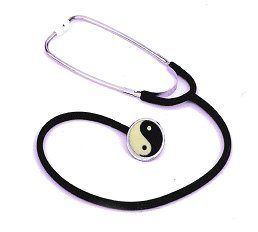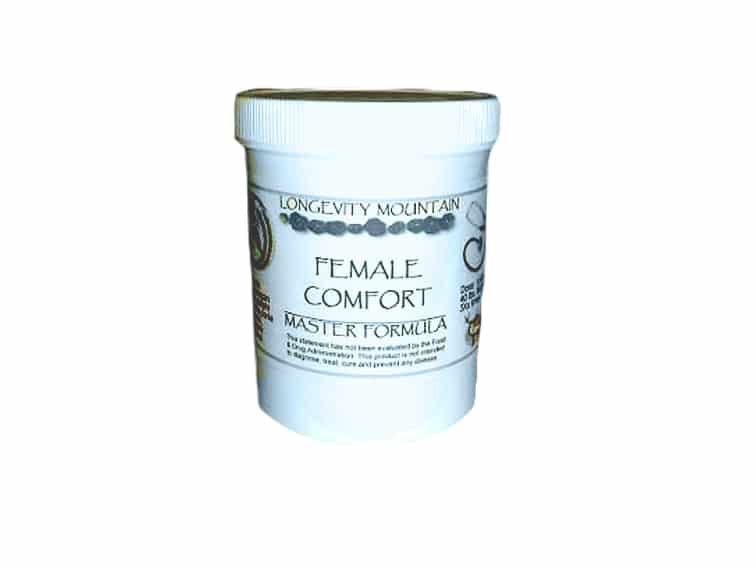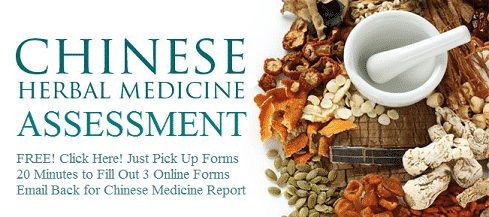HEART HERBS | HEART COMFORT | CHINESE HERBS FOR HEART PROBLEMS
What Are The Best Herbs For Heart Problems?

Cholesterol-lowering drugs are not always the answer relative to prevention of heart attack and stroke. Pharmaceutical drugs can cause many serious side-effects and they often miss the mark because they fail to address the real cause of heart disease.
Documented adverse effects of cholesterol-lowering drugs:
- Loss of memory
- Numbness / nerve injury
- Damaged liver
- Immune system distress
- Injured muscles
- Lung impairment
- Death
The medical establishment in the U.S. perceives the heart as a separate organ that requires specialization, which to a certain extent Traditional Chinese Medicine (TCM) supports. But what is forgotten is that all the organs in the body are related to each other. The heart pumps the blood to support the circulatory system. In turn the blood supports the other organs and itself. The other organs support the heart. All parts of the body are interdependent. The liver filters (one of many functions) the blood from toxins which aids all the other organs.

In Asian herbal medicine, the heart, like all organs of the human body, requires blood to maintain itself. Capillaries to and veins from support the feeding and cleansing of the heart. When any of these vessels are blocked, then the heart becomes interrupted in its functioning. This can become serious resulting in many heart diseases. Traditional Chinese Medicine (TCM) focuses on opening up the targeted channels revitalizing and harmonizing the organ’s function. Heart Comfort opens the chest areas performing the above description in about 45-60 minutes. Heart Comfort opens or naturally vaso-dialates the vessels allowing blood to flow.
There are many causes of heart imbalance, which need to be considered ensuring the best herbal treatment. In these cases additional formulas may need to be considered. Since heart disease results from complex interaction of environmental, nutritional, genetic, and emotional factors, I recommend a comprehensive assessment and testing:
- test for every major risk factor,
- implement herbal regimen to correct imbalance
- re-test to assess the effectiveness of the treatments
HEART COMFORT
Soothes the heart by easing the tension around the heart. Heart Comfort calms the mind without any depressant effects. It is a healthy alternative for palpitations, anxiety, emotional upset, hypo & hyper mania. Tonifying formula for post stroke conditions.
INGREDIENTS
- Root of Dansen or root of Salvia Miltiorrhiza Bge. Effect: Promoting blood circulation, removing blood stasis, cooling blood, release carbuncles, and tranquilizing the disturbed mind by nourishing blood. Normalizing menstruation Indication: irregular menstruation, amenorrhea due to stagnation of blood, postpartum a bdominal pain due to retention of blood, epigastric and abdominal pain, masses in the abdomen, pain of limbs carbuncles and other phylogenic skin infection. As well as epidemic febrile diseases with heat invasion of the Ying and blood system, marks by high fever, delirium, restlessness, insomnia, macula, eruption, bright red tongue, palpitation and severe palpitation.

- Root of Pseudo-ginseng (root of perennial herbal Panax Notoginseng (Burk)) Effect: Arresting bleeding by relieving blood stasis and relieving pain by promoting blood circulation. Indications: Various kinds of internal and external bleeding, traumatic injuries with blood stasis, swelling and pain.
- Root of figwort: This is the root of a perennial herb Scrophularia ningpoonsis Hemsl (Scrophtariaceae) Effect: Clearing away heat, detoxifying and toning Yin.
- Leaf of Blumea Balsamifera DC Effect: Inducing resuscitation, and restoring consciousness, clearing away heat and alleviating pain.

CHINESE HERBS FOR HEART PROBLEMS-THE MASTER FORMULA
TESTIMONIALS
Dr. Dhavid Cooper, D.O.
“The day after I took Heart Comfort, what felt like years of depression seemed to disappear…”
Melody Cooper
“I have tried variety of medicine and supplements but none really took care of my problem until Heart
Comfort…”
Dr. Stuart Marmorstein, D.C. – “From what I have seen in my own practice, Heart Comfort and Hawthorne Comfort
take the health-conscious people to an even higher level of performance and wellness…”
Janet Golden, Reiki Master –
“Heart Comfort…….the answer to my prayer…”

ABOUT HEART PROBLEMS IN THE US
The major hidden risk factors for heart problems:
- High cholesterol
- High triglycerides [blood fats]
- High glucose [pre-diabetic and diabetic]
- High levels of an amino acid called homocysteine that result from vitamin deficiencies and hereditary factors
- High levels of lipoprotein-A
- Low function of the thyroid gland (also causes fatigue and depression)
- High levels of fibrinogen —a protein that makes the blood clot too easily and can promote clogging of the arteries in the heart and brain
- High levels of ferritin—an indication of excess iron
- Elevated C-reactive protein—a marker for excess inflammation and tissue injury
- Low levels of HDL “good” cholesterol and/or high levels of LDL “bad” cholesterol
What does all this mean? Sum it up. Were ingesting too much of the source material to excess. Were eat too much protein that all the above comes from. I’m not saying you have to completely cease meat eating or no protein but reduce it enough that your body is not backing up with all this toxic sludge. Your elimination and body filtering system can only manage so much. Yes the formulas (at the end of this document) will make your blood and lymph channels more flexible, release the pressure and you’ll feel better but you will need to adjust your diet to repair the body back to its healthy state. Longevity Formulas has developed a detox diet for this purpose. There isn’t a magic bullet but we have come as close as Asian medicine can offer.
It is important to work collaboratively with Allopathic practitioners and their testing practices and vice-versa for additional confirmation of treatment success.
HEART STATS
Some startling statistics…
- One in five individuals has some form of cardiovascular disease
- Cardiovascular disease is the number one cause of death in the United States… and has been every year since 1919
- One of every 2.5 deaths in 1998 was due to cardiovascular disease.
- Nearly 950,000 people died from cardiovascular disease in 1998… and more than half were women. Imagine Now!
WOMEN & HEART DISEASE
Did you know that women have a 50% chance of dying from heart disease or stroke?* The risk of a woman dying from cardiovascular disease is nearly twice that of all forms of cancer combined. But, you can do something about it.
- Know your risk
- Know the signs and symptoms
- Improve your lifestyle with a few simple changes
- Talk to your healthcare providers, ideally a alternative/allopathic team of providers.
Morbidity
Number of non-hospitalized adults with diagnosed heart disease: 23.0 million (2001)
GENERAL SYMPTOMS OF HEART DISEASE
In people with heart disease, physical activity, emotional stress, and even eating can sometimes bring on symptoms. Blockages in the arteries of the heart often cause symptoms such as:
- Chest pressure, heaviness, tightness, or a squeezing sensation (sometimes these sensations are mistaken for gas or indigestion)
- Some people experience symptoms in only one area, and not in the chest area at all.
- Difficulty breathing when lying flat, swelling of the ankles, and palpitations (strong and fast heart beats)
- Dizziness, lightheadedness or fainting
- Pain that radiates to the shoulders, neck, or arms
- Nausea or vomiting
- Symptoms of the heart are often experienced as spreading to the neck, the back, the right arm, the throat, ears, jaws, or stomach.
- Easy fatigue and breathlessness during activities
- Pain or pressure in the chest, back, arm, or jaw—usually associated with exertion
- Edema or swelling in the feet, ankles, or legs
- Shortness of breath
- Spasms
TYPES OF HEART DISEASE
Heart and blood vessel diseases are often referred to as “silent killers” because they usually develop over time and can go unnoticed. Many heart problems develop when the arteries, which supply the heart with blood, slowly clog with cells, fat, and cholesterol—a substance known as plaque. This build-up of plaque along the inner walls of the arteries can cause blood clots, or thrombi, to form, leading to further narrowing or blockage of the artery. This condition is known as atherosclerosis, or hardening of the arteries. Lack of blood flow to the heart can cause a heart attack, while lack of blood flow to the brain can result in a stroke.
COMMON TYPES OF HEART DISEASES AND CONDITIONS
Coronary Artery Disease (CAD)
Blockage in the coronary arteries is called coronary artery disease—a condition in which the heart muscle doesn’t get enough blood and oxygen to meet the body’s demand.
Risk Factors
Risk factors for coronary heart disease include:
- High blood cholesterol
- High blood pressure (hypertension)
- Obesity
- Physical inactivity
- Diabetes (type 1 or type 2)
- Stress
- Family history of coronary artery disease
- Male gender
- Aging
- Menopause
- Oral contraceptives (in women who smoke)
- Drugs such as cocaine
FORMS OF CAD
Coronary Artery Disease can take the following forms:
Silent Ischemia
Silent ischemia is a form of CAD in which the blood flow to the heart muscle is reduced but produces very little pain or symptoms. Women, older adults, and people with diabetes may be more likely to have less or even no symptoms of heart disease.
Angina Pectoris
Angina refers to pain or pressure in the chest, back, arm, or jaw—usually associated with exertion—which indicates that the heart muscle isn’t receiving enough oxygen. Angina may be caused by a narrowing of the arteries or muscle spasms in the coronary arteries. Angina caused by spasms is called variant angina and it may be induced by cigarette smoke, cold temperatures, strong emotions, and other sources.
It is important to note that angina—which consists of brief symptoms that resolve in a few minutes—is not a heart attack. However, new angina or a worsening pattern of angina puts someone at increased risk of having a heart attack or cardiac arrest. The pain of angina can be relieved either by increasing the oxygen supply to the heart or by decreasing the heart’s demand for oxygen. Thus, taking a rest from exertion or taking medication or herbal formulas that dilates the arteries may relieve an episode of angina.
Heart Attack (Myocardial Infarction)
A heart attack occurs when blood flow to part of the heart is blocked and part of the heart muscle is damaged and dies as a result. There are now treatments that, if given in the first hours of a heart attack, can open up blocked arteries and limit the damage done to the heart muscle. In addition, during a heart attack a person is at high risk of an arrhythmia or sudden death. For these reasons, it is especially important for the heart attack victim to get medical help fast.
Some people may have few or no symptoms, but in general the more warning signs and symptoms you have, the more likely it is that you are having a heart attack. Signs and symptoms include:
- Heavy feeling, pressure, or intense pain or squeezing in the chest that lasts for more than a few minutes
- Pain that radiates to the shoulders, neck, or arms
- Lightheadedness or fainting
- Shortness of breath
- Sweating
- Nausea or vomiting
HEART FAILURE
Heart failure occurs when the heart isn’t pumping as well as it should. As a result, the body doesn’t get all the blood and oxygen it needs. Heart failure can be caused by coronary artery disease, heart attacks, high blood pressure, diabetes, diseases of the heart valves, cardiomyopathies (diseases that damage the heart muscles), alcohol abuse, severe emphysema, and other causes.
If you have the following symptoms of heart failure, see your doctor:
- Swelling in the feet, ankles, or legs, known as edema
- Shortness of breath on exertion, caused by fluid that builds up in the lungs, known as pulmonary congestion
Other symptoms of heart failure may include wheezing, shortness of breath when sleeping flat, cough, and fatigue.
DIAGNOSIS OF HEART DISEASE
The diagnosis of heart disease is often complicated. The following tests are often used to help make a diagnosis:
- Electrocardiography (ECG)
- Chest x-ray
- Blood tests
- Nuclear scanning
- Cardiac catheterizaton
TREATMENT OF HEART DISEASE
Treatment of heart disease depends on the type of disease as well as many additional factors. Coronary artery disease is treated with:
- Medications such as aspirin; beta-blockers; nitroglycerin tablets, spray, and patches; calcium channel blockers; and thrombolytic therapy.
- Surgery such as coronary angioplasty and coronary bypass operation.
PREVENTION OF HEART DISEASE
Research has identified certain risk factors that make people more prone to heart disease. While some risk factors can’t be controlled, such as being male or having a family history of heart disease, those related to lifestyle can be controlled, and may provide significant long-term benefits. Further, risk factors often overlap. By making changes in one area of your life, such as becoming more physically active, you may decrease your cholesterol levels and blood pressure.
The following steps can help reduce the risk of certain heart diseases:
- Lowering the cholesterol level in your blood through dietary changes and 100% food quality Asian herbal formulas
- Engaging in regular physical activity (preferably aerobic activity, a minimum of 30 minutes per session, at least four times per week)
- Keeping weight or body fat in a healthy range
- Not smoking
- Keeping blood pressure in a healthy range
If you are pregnant or breastfeeding, consult your health care professional before
using this product.
Herbal Supplement Disclaimer
These statements have not been evaluated by the FDA. This product is a dietary supplement and is not intended to diagnose, cure, prevent or treat any diseases. The information here is not provided by medical (allopathic) professionals and is not intended as a substitute for medical advice. Please consult your physician before beginning any course of treatment. However, billions of people have used these products without complication. These herbal formulas have been used in conjunction with allopathic medical regimen, successfully without interference in the restorative process.



